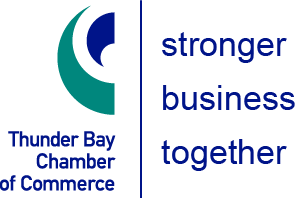Issue
Transport Canada’s recent consultation document on the future of Canada’s Air Transportation system suggests a desire to increase Government involvement in Airport Authority oversight that could hinder responsiveness to local needs and priorities.
Background
30 years ago, the federal government divested Canada’s airports so they could be flexible, connected to their communities, and grow to meet passenger demand. “The primary intention of the national airports policy divestiture policy was to enable the not-for-profit airport authorities to fully develop the potential of their airports, reduce costs, tailor levels of service to local demand, and attract new and different types of business.” These not-for-profit businesses have been guided by local community business leaders, have invested over $30 billion in their own infrastructure, and have paid more than $6 billion in rent to Ottawa — delivering enormous benefits to the federal treasury and value to taxpayers.
In April, Transport Canada conducted an Air Sector Consultation looking at a wide variety of issues facing the sector and asked questions regarding various elements including: the role of government is selecting board directors/chairs, service level standards, data sharing, consultation protocols, regional connectivity and airport financing.
Standardized Consultation Processes
More red tape will only slow down airport growth when demand and competition are taking off in this highly competitive sector. Airport Authorities must balance the needs, interests and concerns of a number of stakeholders whose interests and priorities may not always align. Airport Authorities are accountable to, among others, air carriers (passenger and cargo), passengers, their communities, businesses in Canada that are dependent on air transportation, and municipal, provincial and federal governments.
Airport Authorities are accountable to their communities and the government through their ground lease and to their air carrier/airport user communities through Airport Improvement Fee or Passenger Facilitation Fee agreements with air carriers and the Air Transport Association of Canada.
• Airport ground lease agreements mandate frequent, meaningful public and stakeholder consultation on matters related to airport planning, operations and municipal concerns including noise management and mitigation.
• Airport Improvement Fee/Passenger Facilitation Fee agreements include strict language that requires consultations with and voting by air carriers to provide Airport Authorities with access to AIF/PFF funds for proposed capital expenditures. As a result, through this AIF process airports consult with air carriers on master planning and individual projects. In addition, air carriers are provided with audited financial statements on the use of these funds and the applicability of them under the AIF agreement.
Pricing Strategies
Pricing strategies are a key factor in advancing business tactics that support local objectives. Standardized, one-size-fits-all consultation processes do not provide sufficient flexibility to adequately address local market needs.
A recent report for Aeroports de Montreal by Moody’s Investors Service highlights the risk to its credit rating in the face of potential government-imposed changes: “Any legislative or other development(s) which would limit ADM’s ability or willingness to set rates and charges as necessary to fully cover its costs will cause a downgrade.”
Airport Funding
Recovery from the pandemic is being experienced unevenly across the country with large hubs filling up with travellers and Ultra Low Cost Carriers appearing in new markets; meanwhile many smaller regional airports struggle to secure service in the face of labour/pilot shortages. Further, the system is burdened with over $3 billion in pandemic debt needing servicing, which is impacting airport rates and charges.
Budget 2023 did not include infrastructure investment support for Canadian airports or any reductions in the amount of rent collected by the Government. Canadian airports are currently carrying $18 billion in debt and project to spend an additional $28 billion over the next decade to keep up with the state of repair of the assets, take action on environmental and climate change goals, modernize infrastructure to keep pace with demand, and improve the passenger journey. All these investments, that align closely with the government priorities, need to be funded and are placing considerable strain on airport finances. If the Government is serious about making air transportation in Canada more competitive, a new funding stream for airport infrastructure investments will go a long way to reduce pressures on both airport authorities and the air carriers that they serve.
Governance / Board Member Selection
Airport Authority governance models are comprised of local community members. The Board of Directors of Airport Authorities include appointees from municipal, provincial, and federal government as well as nominees by key community stakeholders. The local nomination process is informed by a consideration of experience, skills and abilities that are important to the board in providing oversight of the business and affairs of the authority. Airport Authority boards reflect the community they serve.
One of the most challenging parts of the airport board nomination process currently is the federal government appointments. Federally appointed board seats are often vacant for extended periods. It is not uncommon for airports to wait one to two years for a federal position to be filled. Additional Federal Government involved in the selection of director or chair positions would add a partisan element that would represent a fundamental shift away from the successful community, skills-based approach towards a more politicized environment that is not desired.
Recommendations:
The Canadian Chamber of Commerce calls on the Government of Canada to:
- Ensure the continued autonomy of Airport Authority operations, financing, pricing and oversight to maximize the local benefits to their host communities;
- Retain the current Airport Authority appointment process to eliminate the politicization of the candidates and to avoid lengthy delays as experienced by other agencies that require government approval of appointments: and
- Create a new airport funding program through the reinvestment of airport rent back into airport infrastructure for a period of 10 years.
Submitted by: Thunder Bay Chamber of Commerce
Co-sponsored by: Fredericton Chamber of Commerce, London Chamber of Commerce, Regina & District Chamber of Commerce, Winnipeg Chamber of Commerce,















